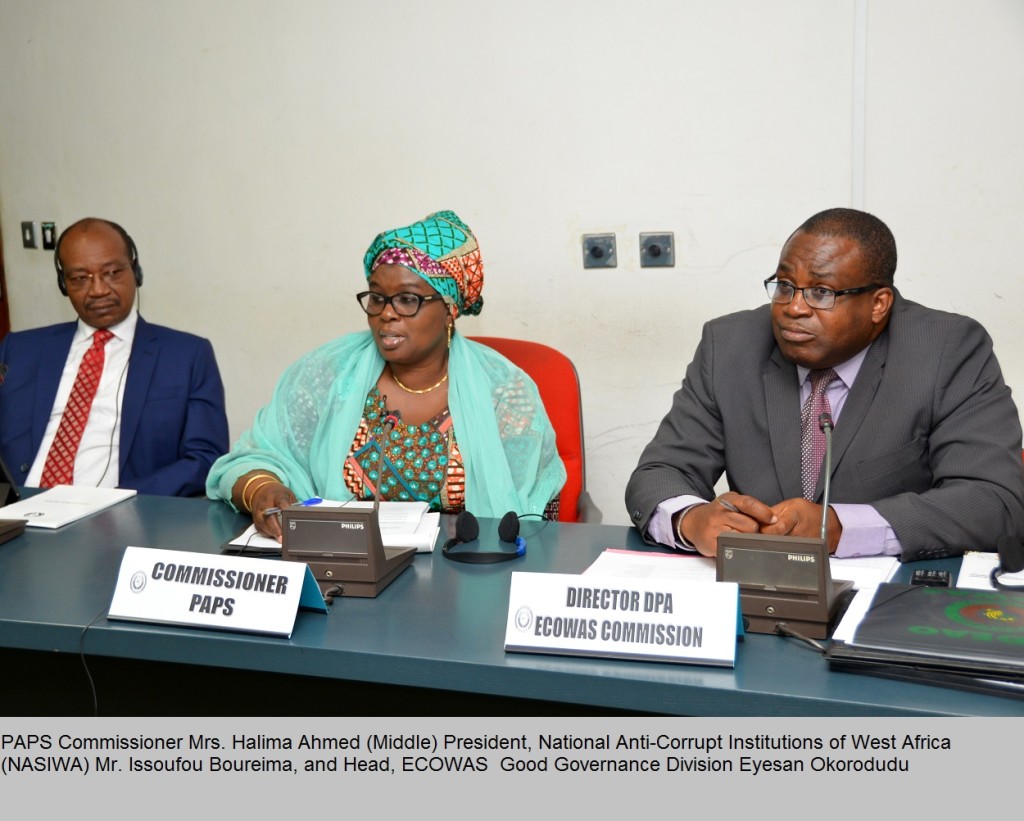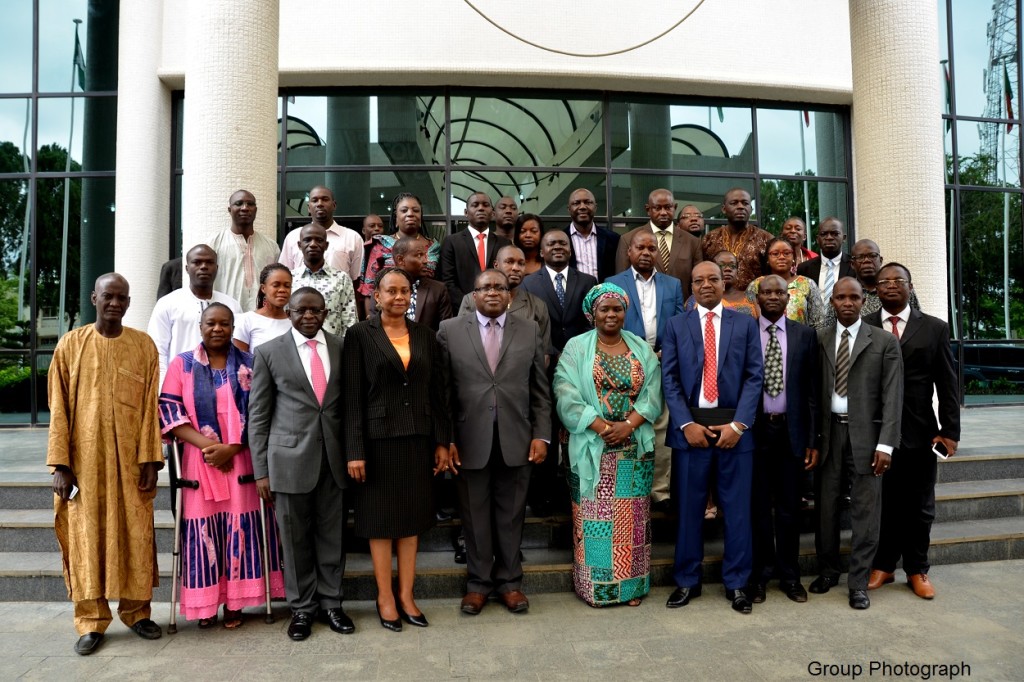
Abuja, April 20, 2016 :More impetus is being given to civil society organisations in West Africa on transparency and accountability in governance with the establishment of the ECOWAS-Civil Society Organisations (CSOs) platform.
At a meeting of the various CSOs with officials of the Department of Political Affairs, Peace and Security (PAPS) and subject matter experts on the 19th of April in Abuja, participants were made aware of the need to galvanize stakeholders in Member States to support and promote transparency and accountability at both national and regional levels.
Specifically, the meeting was called to examine and map out strategies and modalities for CSOs participation in the fight against corruption in Member States including addressing the issue of modalities of ECOWAS’ collaboration with the SCOs to promote integrity governance in the region while canvassing donor support for the sustenance of the programme/projects of the ECSOPAG.
Declaring the meeting open, the ECOWAS Commissioner for PAPS Mrs. Halima Ahmed expressed optimism that bringing together SCOs from across the 15 ECOWAS Member States would turn out to be “yet another step forward in our resolve as a community to deepen democracy and good governance practices”
Giving that a number of West African States are still rated as some of the most corrupt in the world, Commissioner Ahmed said this not only necessitates the urgency and importance of sustained civil society engagement but also the importance of establishing a platform for CSOs to foster coherence and coordination across west Africa.
Flanked by the President, National Anti-Corrupt Institutions Mr. Issoufou Boureima, Commissioner Ahmed identified the significant problem in governance in the region as over-centralization of decision-making and inadequate stakeholders’ involvement which permit patronage of powerful special interests and high levels of corruption.
Maintaining that civil society is seen as an increasingly important agent for promoting good governance, transparency, effectiveness, openness, responsiveness, and accountability, the Commissioner emphasized that the platform being raised is not merely a tool for naming and shaming culprits but a canvas of exertions for each CSO to constructively engage political power holders with a view to working with them to fill gaps, address challenges and provide remedial solutions.
In his presentation on Understanding the ECOWAS Anti-Corruption Architecture, the Head, Democracy and Good Governance Unit of PAPS Eyesan Okorodudu disclosed that the recent establishment of a Mediation and Facilitation Division would go a long way in completing the jig saw in the efforts by the Department to prevent conflict while building and keeping the peace. He noted that work would still be done under the umbrella of West African Civil Society Forum (WACSOF) in order to take hold of the existing agenda.
Eyesan’s presentation revolved round the charge of ECOWAS as a co-duty bearer in the entrenchment of transparency and accountability in the region as well as the various Impacts of corruption having regards to the ECOWAS main normative framework and the general regional normative instruments for combating corruption in West Africa. Going forward, he said the ECOWAS Conflict Prevention Framework (ECPF) provides a valuable guide in the new time since there is now a shift in focus from an ECOWAS of states to an ECOWAS of People
The Director of Gender, represented by Head, civil society Division madam Akom Violet Ukpanyang stressed the timeliness of the platform being raised considering that there exists some level of political imbalances in the region.
Transparency expert and former secretary of the Nigerian Economic and Finacial Crimes Commission (EFCC) Mr. Emmanuel Akomaye made a presentation on –Trends of corruption: Its effects and challenges to anti-corruption efforts in West Africa. Stressing that the CSOs need to also interrogate their strategies, he said the need for more work is imperative more so that corruption is not ebbing despite all the efforts of the SCOs
ECOWAS established the Network of Anti-Corruption Institutions in West Africa (NACIWA) in 2009 as part of its strategies to promote accountability and transparency in political governance in the region. The network was set up in conformity with the provisions of Article 38 (2) of the Protocol on Democracy and Good Governance which mandates the ECOWAS Commission to apply appropriate mechanism to address issues of corruption within Member States and at Community level.
|





